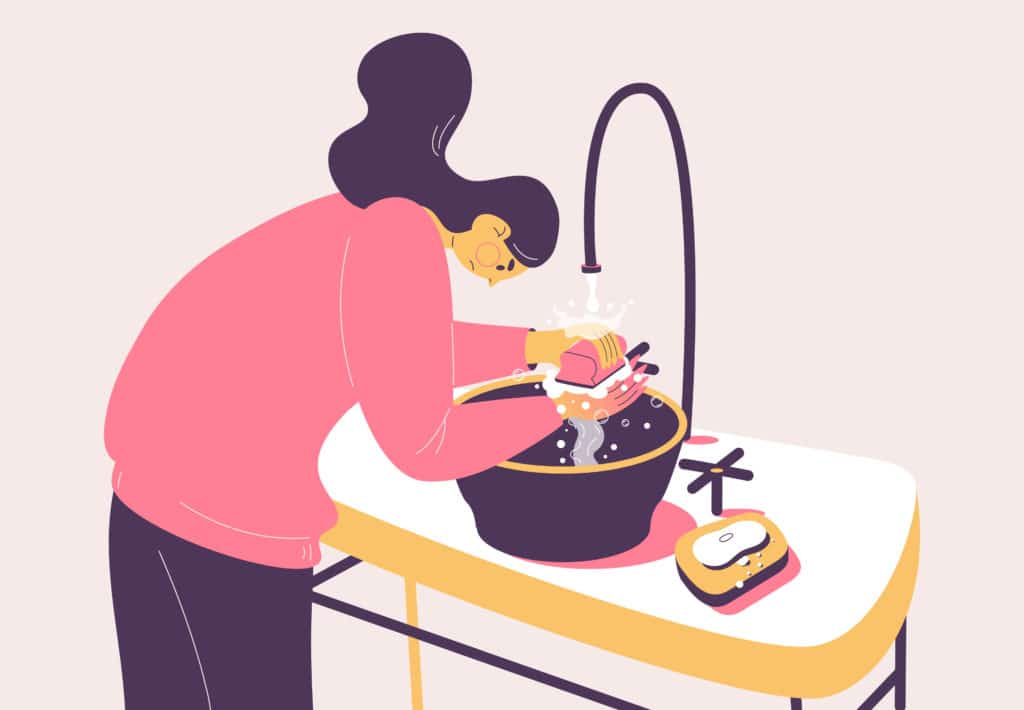Mental health disorders can look different for everyone. Symptoms of obsessive-compulsive disorder might be minor, where you avoid stepping on cracks in the asphalt, but without any severe disruption to your mental health or daily activity. For many people, the signs and symptoms of OCD are anything but and disrupt all areas of daily life.
If you or someone close to you is struggling with an obsessive-compulsive disorder, it’s time to get treatment. You can find individualized treatment to target the symptoms of OCD with Water Gap Wellness Center.
Water Gap Wellness Center is a mental health treatment facility in Pennsylvania. Contact us today to learn more about our outpatient mental health treatment options.
What is Obsessive-Compulsive Disorder?
Obsessive-compulsive disorder, OCD, is a mental health disorder characterized by obsessions and compulsions.
- Signs of OCD obsessions are relegated to thoughts: obsessive thinking, habitual or patterned thinking, usually about distressing things.
- Signs of OCD compulsions are relegated to actions: compulsive actions like flicking light switches on ten times or checking locks on doors seven times each hour.
What Are the Symptoms of OCD?
Symptoms of OCD look different for everyone. They typically involve obsessions or compulsions that can’t be controlled.
Obsessions
Obsessions are often unwelcome thoughts, doubts, urges, or worries that can’t seem to be controlled, like:
- Violent images of you doing something violent or something violent happening to you
- Sexually intrusive thoughts
- Worry over germs and contamination
- Mental contamination is where you worry that you are dirty because of your thoughts
- Intrusive thoughts about your relationship
Compulsions
Compulsions are actions that involve a specific number or a physical action like:
- Checking your clothes or the area around you for contamination
- Checking that all your doors and windows are locked
- Washing things around you or your body in excess
- Touching things in a certain order, at a specific time, or involving a specific number without disruption
- Arranging items in a particular way
- Counting to a certain number
- Repeating a word or phrase either out loud or in your head
- Replacing intrusive thoughts with substitute images
How Can OCD Disrupt a Person’s Life?
Symptoms of OCD can be major or minor. Major signs of OCD can interfere with daily life in many ways.
Disruptions to Daily Life
Firstly, repeating compulsions can disrupt daily life because it often takes time. Individuals struggling with OCD might avoid situations that could trigger their compulsions, so they might not go out to eat, go outside, go to work, or see friends and family.
Obsessive thoughts can be difficult to manage and interfere with your ability to concentrate. This difficulty concentrating can disrupt conversations with loved ones, focusing on the job, or safely driving a car. Moreover, they can leave you exhausted at the end of a hard day.
Impact on Relationships
Secondly, symptoms of obsessive-compulsive disorder impact relationships. Some people try to hide their OCD from those close to them. Others might have doubts or anxieties about relationships because of their mental health disorder, making it too difficult to support the relationship. Without proper treatment, symptoms of OCD can disrupt communication, intimacy, and other facets of relationships.
Emotional Health
Thirdly, signs of OCD have a significant impact on mental health. Many people are ashamed of their obsessive thoughts or worry that treatment won’t work for them. They try to hide their obsessions or compulsions, making it difficult to be around other people and leading to feelings of isolation and shame. Some people struggle with anxiety about carrying out their compulsions or handling their obsessions. Without treatment, this can lead to depression or anxiety and OCD.
Water Gap Wellness Center Offers OCD Treatment Programs in the Tri-State Area
Don’t let your signs of OCD control you. You can find mental health treatment at qualified facilities providing access to individual and group therapies like cognitive behavioral or exposure therapy. Treatment can give you the freedom to take back control of your life.
Water Gap Wellness Center provides customized OCD treatment programs that can give you peace of mind. Our facility offers partial hospitalization programs, intensive outpatient programs, and traditional outpatient therapy plans. You can find a level of care that’s most appropriate to your situation and fits your schedule. When you reach out to our admissions staff, we’ll talk to you about your goals, what therapies we offer for individual and group therapy, and how our seasoned mental health professionals can provide continuum care for your OCD.
Contact Water Gap Wellness Center today to learn more about OCD treatment.




